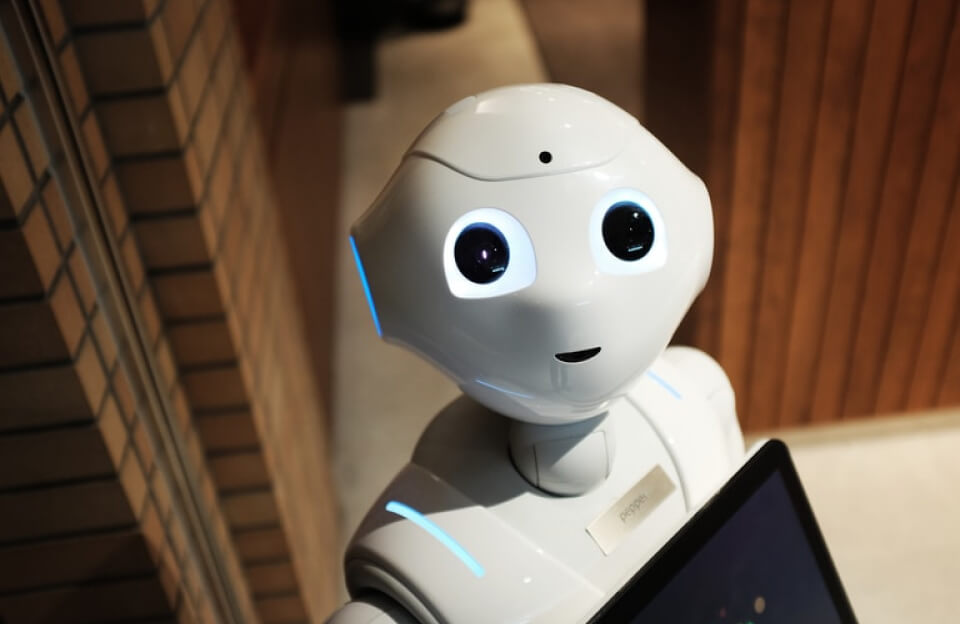They’re everywhere.
From casual “Hi, how can I help you today?” pop-ups to full-blown virtual therapists, AI chatbots have quietly taken over the digital world. Whether you’re ordering food, troubleshooting a gadget, or journaling your emotions to a bot at 2 a.m., chances are—you’ve already chatted with AI more times than you realize.
But with every smart reply, there’s a bigger question:
Are these AI companions truly helpful, or are we sleepwalking into a world of scripted relationships and automated empathy?
Let’s dive into the rise, reach, and ripple effect of AI chatbots.
What Are AI Chatbots? 🤖

At their core, AI chatbots are software programs that simulate human conversation using natural language processing (NLP) and machine learning (ML). But that’s the technical definition.
In real life, they’re the voices without bodies who talk to us about flight bookings, therapy support, or daily horoscopes. They’re becoming our digital sidekicks—efficient, responsive, and scarily available 24/7.
A Brief Journey of AI Chatbots Innovation 📜
It all started in the 1960s with ELIZA — a curious little program that mimicked a psychotherapist. Simple reflections, no real understanding, but people still opened up to it. That was the first clue: maybe we humans want to be heard, even by machines.
Then came the quirky 2000s with bots like SmarterChild, who lived inside AOL and MSN. It told jokes, gave updates — and often annoyed you. Still, it felt like something new.
But things changed — fast:
- 2016: Google Assistant and Alexa brought voices into our homes.
- 2020: GPT-3 proved machines could write — really write.
- 2022: ChatGPT broke the internet. 1 million users in 5 days. Why? Because it felt like it understood you.
- 2023–2025: Enter the heavyweights: Claude, Gemini, DeepSeek, and Grok — smart, emotional, even funny.
Suddenly, AI wasn’t just a tool. It became a presence.
How AI Chatbots Are Changing the World 🌍
Ask around — and you’ll find people who:
- Talk to their AI when they’re feeling lonely 🥺
- Use it to write love letters, resumes, or even poetry
- Ask it for advice when they’re scared, confused, or just bored
Whether it’s a student getting help with calculus, a writer facing a block, or someone crying alone at night — there’s often a chatbot quietly sitting in the corner of their screen.
And that changes something about us.
Current Buzz: Grok & DeepSeek — The New Giants 🚀
Let’s talk about two names lighting up the AI world:
Grok (by xAI / Elon Musk)
- Released: Feb 2025
- Superpower: “Big Brain” mode, real-time voice, coding, sarcasm, and sass
- Controversy: Elon wants to retrain it to reflect his beliefs 🤯
- Only on: X Premium+ — if you’re in the club
DeepSeek (from China)
- Launched: Jan 2025
- Superpower: Chain-of-thought reasoning — like it thinks out loud
- Explosive Growth: 2400%+ spike in installs, huge in Asia
- Red Flags: NewsGuard flagged it for misinformation; banned in EU
They’re powerful, fast, a little scary — and undeniably important in shaping global conversations.
GPT-4o, Claude 3.5, Gemini 1.5 — AI’s Power Trio 🧠
These three are shaping how billions interact with machines:
GPT-4o (OpenAI)
- Launched: May 2024
- Feels like: Your clever, funny friend who remembers your vibe
- Used in: ChatGPT, Windows, macOS, Copilot+ apps
Claude 3.5 Sonnet (Anthropic)
- Launched: June 2025
- Feels like: That calm, wise person you trust for advice
- Special trick: Amazing with charts, long reasoning, code debugging
Gemini 1.5 (Google)
- Launched: Feb 2025
- Feels like: The all-knowing teacher who doesn’t get tired
- Secret weapon: Can remember what you said… 1 million tokens ago!
Together, they’re not just assistants. They’re co-pilots in your daily life.
Human-Like… But Are They Human? 🔍

They laugh. They say sorry. They give you advice.
But here’s the truth: AI chatbots aren’t human. They sound like they care — but they don’t feel. They don’t live, love, or lose. Their empathy is programmed, their memory synthetic.
And yet… they help.
They listen when no one else does. That’s both beautiful — and dangerous.
The Double-Edged Sword ⚖️
What we gain:
- Instant help anytime, anywhere
- Emotional relief in lonely moments
- Boosts in learning, productivity, and creativity
What we risk:
- Trusting too easily
- Replacing real human contact
- Letting algorithms shape our thoughts
AI companions might feel like magic — but they’re made of code. And every line of that code has been written by someone with an intention.
Final Thoughts ❤️
This isn’t just a tech story. It’s a human one.
AI chatbots are evolving fast — and they’re not slowing down. But as they get closer to us, we have to stay close to what makes us human:
- Real emotions
- Honest connections
- The ability to choose our responses, not just generate them
Don’t stop using AI. Just don’t stop being you.
What’s Your Take? 💬
Has an AI ever surprised you with how real it felt? Share your story below — because behind every chatbot, there’s a human who trained it. And on the other side of the screen… there’s you ❤️
🔗✨ You can also check this post on Facebook click here
🔗✨ You can also check this post: Love Bombing: When Affection Turns Into Emotional Control
-
India’s Moment of Glory: Indian Women Create History in Semi-Final Win Against Australia

In a performance that will be talked about for years to come, the India women’s…






